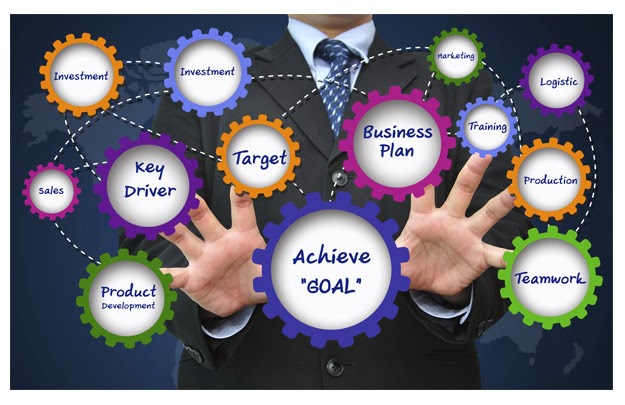A Deep Study Just How Event Management Works to Create Unforgettable Experiences
Event management is a complicated technique that combines numerous aspects to craft extraordinary experiences. It calls for a clear understanding of the event's function and audience. Planners should navigate budgeting, logistics, and advertising to ensure a seamless execution. Each element plays an important function in accomplishing the desired impact. Nonetheless, the trip does not finish with the event itself. There are insights to uncover that can shape future undertakings.
The Basics of Event Management
Effective event management encompasses a variety of necessary principles that direct the planning and execution of successful occasions. At its core, it includes understanding the event's purpose, target market, and preferred results. Identifying the target demographic is vital, as it informs decisions connected to web content, marketing, and logistics.
Budgeting is one more essential facet, guaranteeing that sources are designated successfully while meeting the event's purposes. This includes preparation for unanticipated costs that might arise.
Time management plays an important duty, as event supervisors need to develop a detailed timeline to coordinate various tasks and landmarks.
In addition, efficient interaction among stakeholders, suppliers, and staff member is important to ensure alignment and stay clear of misunderstandings.
Finally, threat management need to be taken into consideration, with backup plans in area to deal with prospective challenges, thus enhancing the general experience for attendees and ensuring a seamless execution of the event. (charlotte event companies)

Key Roles in Event Planning
In event preparation, recognizing key roles is essential for effective implementation. The event coordinator is responsible for overseeing logistics and guaranteeing all facets straighten with the vision. Furthermore, reliable supplier management is crucial for preserving top quality and promoting strong collaborations throughout the preparation procedure.
Event Organizer Duties
An occasion coordinator orchestrates the complicated elements of event preparation, making certain seamless implementation from fertilization to conclusion. They are liable for conceiving the event style, setting budgets, and producing timelines to keep the job on the right track. Sychronisation with stakeholders, consisting of customers, venue supervisors, and volunteers, is important to straighten assumptions and promote interaction. The coordinator additionally looks after logistics, such as food catering, transport, and innovation needs, making sure all parts function harmoniously. They perform website visits, manage timetables, and troubleshoot issues that might occur during the event. Post-event, the coordinator evaluates the event's success, collecting feedback and examining results to educate future jobs. This complex function calls for solid organizational abilities, interest to detail, and effective interpersonal communication.
Vendor Management Essentials
Guiding through the landscape of vendor management is important for successful event planning. Effective supplier management involves identifying, choosing, and collaborating suppliers that give crucial solutions, such as food catering, audiovisual support, and decor. Event planners have to maintain strong interaction with suppliers to guarantee that all aspects line up with the event's vision. Trick functions include the vendor manager, that supervises contracts and negotiations, and the logistics organizer, accountable for on-site setup and execution. It's necessary to develop clear assumptions and timelines, promoting a joint atmosphere that improves the overall experience. By focusing on these components, event organizers can browse possible challenges, ensuring that every information adds to a seamless and memorable event.
Crafting a Vision: Concept Development

When a vision is established, it becomes vital to equate it into actionable elements. This includes defining the ambience, choosing suitable locations, and figuring out the event's design. Working together with stakeholders, including sponsors and companions, even more fine-tunes the concept, making certain that all events share a merged understanding of the event's objective. Ultimately, a well-developed vision not just boosts participant engagement yet also sets the stage for memorable experiences that resonate long after the event wraps up.
Budgeting and Resource Appropriation
With a clear my blog vision in position, the next step in event management involves cautious budgeting and source allowance. This critical phase assurances that all required elements are moneyed and lined up with the event's goals. Event supervisors begin by estimating prices connected with venue option, wedding catering, enjoyment, and advertising. They produce an in-depth budget plan that outlines each classification, permitting for transparency and accountability.
Resource allowance expands past funds; it likewise encompasses personnels. Recognizing group duties, obligations, and timelines is crucial to ensure effectiveness. Event managers have to also consider backups for unexpected expenses or adjustments in extent, developing a buffer within the budget plan.
Focusing on spending on aspects that enhance visitor experiences is vital. By strategically assigning sources, event supervisors take full advantage of influence while maintaining monetary control. This disciplined method not only cultivates effective occasions yet likewise constructs integrity and trust fund with stakeholders and participants.
Logistics: The Backbone of Event Implementation
While budgeting lays the foundation for an occasion, logistics work as its backbone, guaranteeing that every element is implemented smoothly and successfully. charlotte event companies. This incorporates a wide range of activities, including venue option, transport setups, and devices procurement. Effective logistics management needs careful planning and control to guarantee that all elements line up with the event's timeline and objectives
Key elements of logistics include stock management, where supplies and products are tracked to stop lacks, and staffing, which entails recruiting and training personnel to handle various jobs. Communication is likewise crucial, as it facilitates partnership among suppliers, sponsors, and the event team.

Marketing and Promotion Techniques
Efficient advertising and marketing and promo strategies are crucial for maximizing participation and involvement at an event, as they create passion and excitement amongst potential individuals. Event supervisors use a mix of typical and digital marketing strategies to reach their target market. Social network systems, e-mail campaigns, and targeted ads are generally used to develop buzz and foster community communication. Partnerships with influencers or sector leaders can boost reputation, while involving material such as videos and testimonies can resonate with possible find out here now guests.
In addition, leveraging event-specific hashtags and developing shareable graphics motivates natural promo amongst guests. Early riser ticket offers and exclusive promotions can incentivize registration, additionally enhancing rate of interest. In addition, a properly designed website that offers very easy navigation and clear details about the event can enhance the user experience. By carrying out these advertising and promo methods, event managers can ensure greater exposure and eventually create an unforgettable experience for all participants.

Gauging Success: Feedback and Evaluation
Success in event management depends upon robust responses and examination systems. These procedures are important for determining the efficiency of an occasion and identifying areas for renovation. By collecting input from attendees, organizers can evaluate satisfaction degrees, understand preferences, and assess total effect. Surveys and interviews serve as useful devices for collecting measurable and qualitative information, enabling comprehensive evaluation.
Furthermore, assessing essential performance indicators (KPIs) such as participation prices, engagement degrees, and return on financial investment (ROI) offers a clearer image of event success. Post-event debriefing sessions with the planning team also add understandings, promoting a society of constant improvement.
Ultimately, a systematic approach to feedback and evaluation not just improves future occasions however additionally reinforces relationships with stakeholders. By carrying out these techniques, event supervisors can produce remarkable experiences that resonate with participants and drive ongoing interaction.
Often Asked Inquiries
How Do Event Managers Manage Unforeseen Difficulties During an Occasion?
Event managers resolve unanticipated obstacles by remaining calmness, evaluating the scenario, and carrying out contingency strategies - charlotte event companies. They communicate properly with their YOURURL.com team, adapt rapidly, and prioritize options to assure the event continues smoothly and efficiently
What Technology Tools Are Important for Modern Event Management?
Necessary modern technology tools for modern-day event management consist of event registration software, job management applications, participant involvement systems, and analytics devices. These sources enhance processes, boost communication, and enhance general event experiences for organizers and individuals alike.
How Do Cultural Distinctions Effect Event Planning and Implementation?
Cultural differences significantly affect event preparation and implementation. They influence themes, custom-mades, interaction styles, and expectations, necessitating tailored approaches to guarantee inclusivity and regard, eventually forming the overall experience and success of the event.
What Are the Moral Considerations in Event Management?
Honest considerations in event management encompass transparency, sustainability, social sensitivity, and inclusivity. Planners have to prioritize fairness, regard diverse target markets, reduce environmental effect, and guarantee ease of access to develop accountable and memorable experiences for all participants.
Just How Can Sustainability Be Integrated Into Event Planning?
Sustainability can be incorporated right into event planning by making use of environment-friendly products, reducing waste, sourcing regional suppliers, implementing carbon offset programs, and advertising electronic services to reduce paper usage, therefore enhancing environmental consciousness within the event's framework.